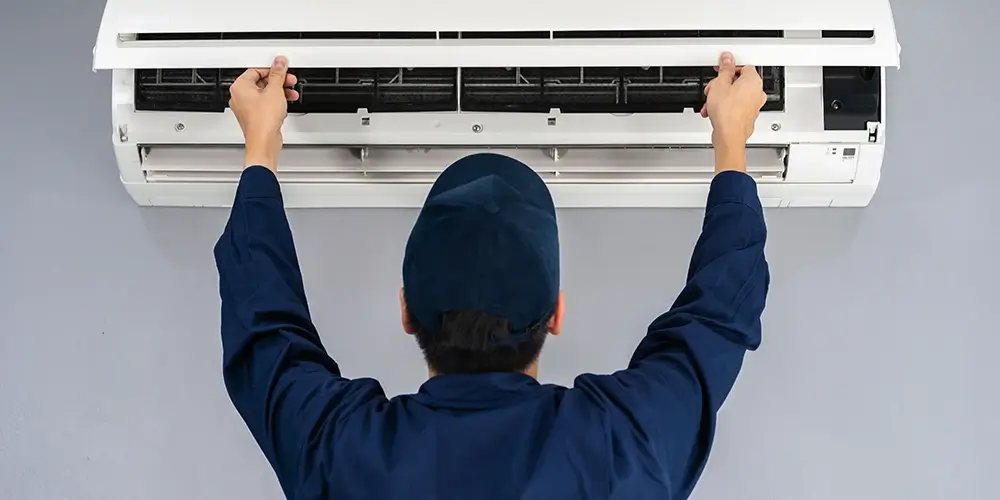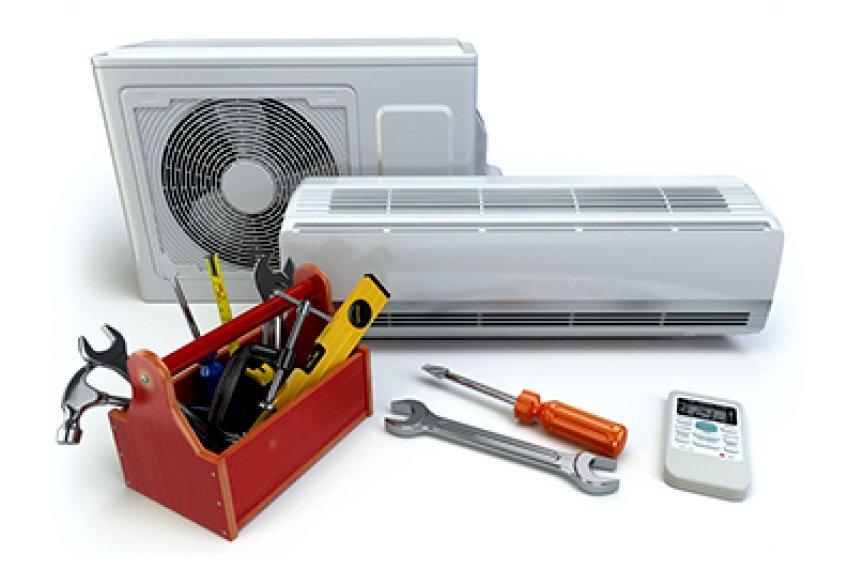Get This Report about Fix Air Conditioner
Get This Report about Fix Air Conditioner
Blog Article
Air Conditioning Repair Near Me Can Be Fun For Everyone
AC Air Conditioner Repair: Specialist Cooling System Repair Ensures Your Home Stays Comfy Throughout The Year
Kinds Of Air Conditioning Systems
When taking on air conditioner repair, understanding the kind of a/c system you're handling can save time, cash, and irritation. Ever questioned why some units cool a space quicker than others? Or why certain systems seem to break down more regularly? Let's peel back the layers.
Central Air Conditioning
Some Ideas on Ac Repair You Need To Know
Picture a cool breeze streaming through a whole house, whispering convenience into every corner. Central air conditioning systems do exactly that. They use a network of ducts to distribute cooled air, relying on a compressor and condenser outside, coupled with an evaporator coil inside. However when this complex monster fails, pinpointing the issue can be like finding a needle in a haystack.
Split Systems

Split systems are a popular option for many homes-- part indoor unit, part outdoor compressor. They use versatility and efficiency, however their double nature indicates repair can include either part. Have you ever heard a weird sound outside your home only to find the indoor system isn't cooling? That's a classic indication of a split system problem.
5 Simple Techniques For Ac Repair Near Me
Window Units
These compact warriors battle summer season heat by fitting snugly into a window frame. They combine all components into a single box. Their simplicity frequently implies fewer repair work headaches, but overlooking filters or allowing particles buildup can cause lessened performance or breakdowns.
Ductless Mini-Splits
Some Known Incorrect Statements About Repair Air Conditioner Near Me
Ductless systems bypass ductwork totally, making them ideal for homes without existing ventilation. They're quiet, efficient, and surprisingly resistant. Yet, when repair work are needed, specialists need to be proficient at dealing with refrigerant lines and electrical connections-- no little feat.
Quick Reference Table
| Type | Secret Features | Typical Repair Work Issues |
|---|---|---|
| Central air conditioning | Ductwork, whole-house cooling | Duct leaks, compressor failure |
| Split System | Indoor & & outdoor units | Refrigerant leakages, fan motor problems |
| Window System | All-in-one, easy installation | Filthy filters, electrical faults |
| Ductless Mini-Split | No ducts, zoned cooling | Line leaks, sensor malfunctions |
See This Report about Fix Air Conditioner
Unwinding the A Lot Of Regular Air Conditioner Predicaments
Have you ever wondered why your air conditioner unexpectedly stops cooling throughout a sweltering afternoon? One common culprit is an unclean or stopped up air filter. This sly villain restricts air flow, requiring your system to work overtime, which not just lowers efficiency however can likewise lead to premature breakdowns. Imagine attempting to breathe through a headscarf soaked in dust-- it's tiring!
Another frequent misstep is refrigerant leakages. These invisible leakages don't simply reduce cooling power however can likewise harm the compressor, the heart of your a/c unit. How frequently do you look for uncommon hissing noises or ice development on the coils? Capturing these signs early can conserve you from expensive repair work down the line.
Beyond the Essentials: Lesser-Known Issues
Examine This Report about Ac Air Conditioner Repair
In some cases, the thermostat itself is the nuisance. Miscalibrated or defective thermostats send blended signals, causing the air conditioning to cycle erratically. Ever knowledgeable your a/c turning on and off in fast succession? That's called short biking, a sly efficiency drainer that can break parts quicker than you 'd anticipate.
Electrical issues, such as worn electrical wiring or a malfunctioning capacitor, may hide below the surface. Repair Air Conditioner Near Me. These frequently manifest as air conditioning systems stopping working to start or suddenly shutting down. A professional eye knows to check these elements with accuracy tools, something a casual glance won't expose
Specialist Tips for Diagnosing Common Air Conditioner Concerns
Examine This Report about Ac Air Conditioner Repair
- Inspect and replace air filters routinely-- every 1 to 3 months depending upon usage and environment.
- Listen for unusual noises like rattling or buzzing that might signal loose parts or electrical faults.
- Examine the outdoor unit for particles or obstructions that impede air flow and cause getting too hot.
- Look for frost buildup on evaporator coils, a hint towards refrigerant issues or airflow constraints.
- Evaluate the thermostat settings and recalibrate if the temperature readings feel off.
Quick Recommendation Table: Manifestation & & Probable Triggers

| Symptom | Probable Cause | Specialist Suggestion |
|---|---|---|
| Warm air blowing | Low refrigerant or unclean coils | Clean coils and look for leakages instantly |
| Brief biking | Thermostat issues or oversized system | Change thermostat settings and consult sizing standards |
| System will not start | Electrical faults or capacitor failure | Test electrical wiring and change capacitors as required |
| Water leak | Clogged drain line or frozen evaporator | Clear drain lines and check for coil icing |
DO IT YOURSELF A/c Upkeep Tips
Ac Fixing - An Overview
Ever noticed your a/c unit sputtering like an old engine on a hot summer day? Disregarding subtle indications typically implies more than just a sweaty afternoon-- it's a prelude to unforeseen AC repair work costs. What if you could catch those whispers before they turn into wails? Routine DIY maintenance can be your very first line of defense.
Easy Steps to Keep Your AC Running Efficiently
An Unbiased View of Ac Air Conditioner Repair
- Clean or Replace Filters: A blocked filter is like attempting to breathe through a headscarf. Every 1-3 months, inspect and swap out your filters. It improves airflow and effectiveness, preventing compressor stress.
- Examine the Condenser Coils: Dust and particles function as unnoticeable blankets smothering your system's cooling power. Carefully brush or vacuum the coils, however prevent harsh chemicals that may erode the metal.
- Inspect the Drain Line: When was the last time you looked at your drain pan? A stopped up drain can cause water leakages and foster mold growth. Flushing it with a vinegar solution monthly keeps the circulation clear.
- Seal and Insulate: Are your ductworks whispering leakages? Sealing gaps with mastic or foil tape increases performance and minimize unequal cooling.
Pro Tips Beyond the Essentials
- Measure your unit's voltage to capture subtle electrical wear before it sparks huge problems.
- Listen for unusual hums or rattles-- these acoustic breadcrumbs often signal loose parts or stopping working motors.
- Keep outdoor systems shaded but make sure a minimum of two feet of clearance around them for optimal air flow.
Ask yourself: Are you hearing your a/c's quiet SOS or simply waiting on it to shout? Requiring time for DIY AC maintenance transforms reactive repair work into proactive care, conserving sweat, tension, and yes, cash.
The Ultimate Guide To Air Conditioner Repair Near Me
Why Proficiency in AC Repair Work Matters
Imagine this: your AC unit sputters and groans during a scorching afternoon, leaving you sweltering inside your home. Would you trust an amateur fumbling with delicate components, or would you seek the reassurance of a professional AC professional!.?.!? The complexities of modern-day a/c systems demand precision and experience. A slight mistake get more info can escalate a small malfunction into an expensive disaster.
Ac Air Conditioner Repair Can Be Fun For Anyone
Unseen Complexities Behind the Cool Breeze
Numerous underestimate the layers hidden beneath the streamlined exterior of an air conditioning system - Air Conditioner Repair Near Me. From refrigerant leakages that quietly drain efficiency to defective thermostats that misread temperatures, these concerns require more than a fundamental toolkit. Professionals possess an eager eye for identifying problems that balance property owners ignore
Important Tips for Selecting the Right Professional
The smart Trick of Air Conditioning Repair That Nobody is Discussing
- Accreditation and Training: Verify qualifications; a service technician trained in the most recent a/c innovations is invaluable.
- Experience with Specific Systems: Not all air conditioning units are created equivalent; find someone knowledgeable about your design's quirks.
- Diagnostic Method: Proficient specialists utilize advanced tools-- like electronic leak detectors and thermal imaging-- to determine hidden faults.
What to Expect from a Pro's Diagnostic Process
| Step | Function | Expert Insight |
|---|---|---|
| Visual Evaluation | Determine obvious wear or damage | Search for deterioration or unusual sounds-- an indication frequently overlooked |
| Pressure Evaluating | Identify refrigerant leakages | Subtle pressure drops can mean micro leaks invisible to the naked eye |
| Electrical Checking | Guarantee circuit stability | Loose connections can simulate serious mechanical failures |
Air Conditioning Repair - The Facts
Why Do It Yourself Typically Falls Short
Tempting as it is to play with your air conditioning system, do it yourself repairs frequently miss out on the root cause. Topping off refrigerant may temporarily cool your area however overlooks leaks that aggravate over time. Expert specialists do not simply patch signs; they pursue the underlying mechanical and electrical faults that sap performance.
The Best Guide To Ac Repair Near Me
Concerns to Ask Before Working with
- What diagnostic tools do you use to recognize problems?
- Can you explain the repair work procedure and expected outcomes?
- Are you familiar with the refrigerants suitable with my system?
- Do you follow security protocols for handling electrical parts?